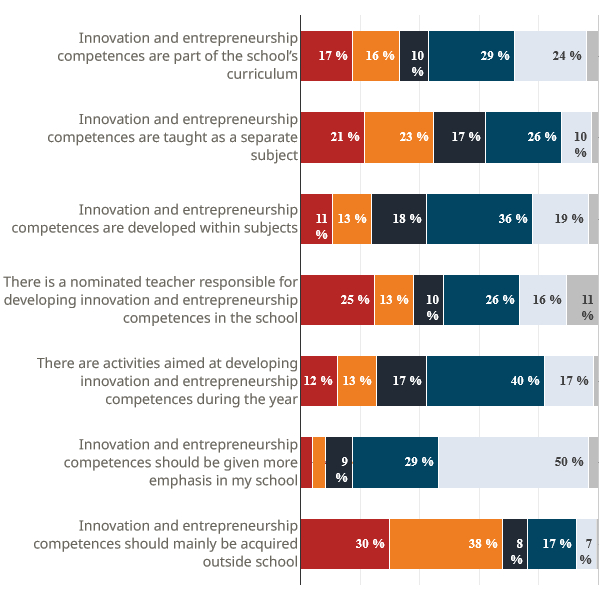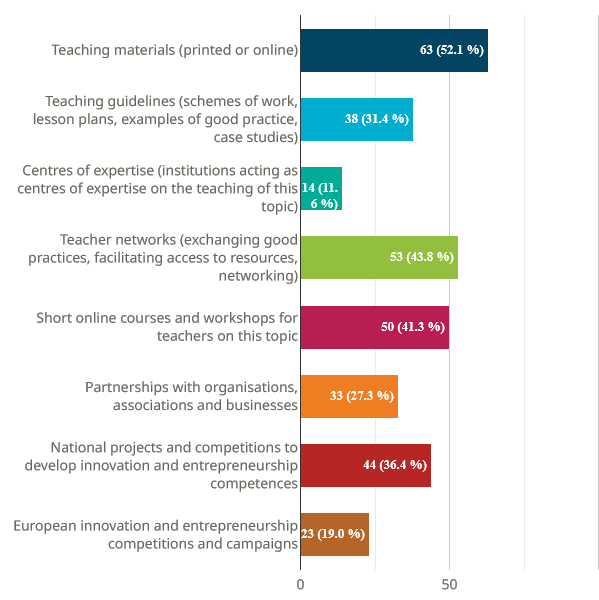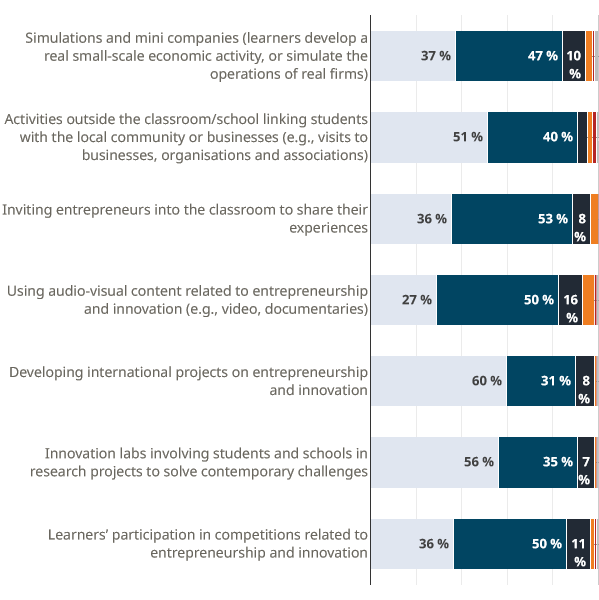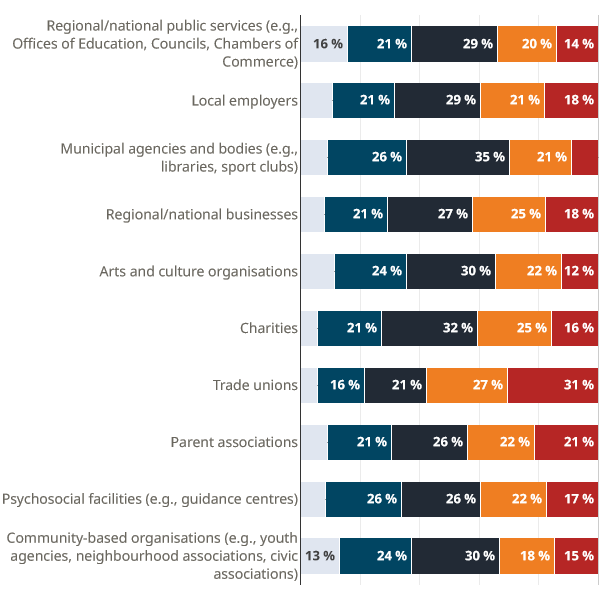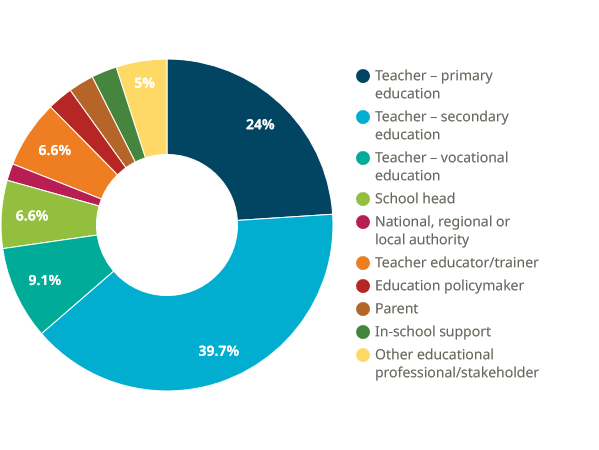Survey on innovation and entrepreneurship competences - Results

Entrepreneurship competence is about being able to recognise and grasp opportunities, as well as to plan and manage processes that are of cultural, social or financial value, in a creative way. It is a multifaceted competence entailing knowledge of contexts and opportunities, ethical principles and self-awareness. Additionally, it includes the skills of creativity (imagination, critical reflection, problem-solving), communication, mobilising resources and coping with uncertainty, ambiguity and risk, along with the attitudes of self-efficacy, motivation and perseverance, and valuing the ideas of others. Similarly, innovation competence refers to a blend of particular personal characteristics, social skills, content knowledge, future-oriented mindset, creative thinking, and skills in project management and making. Entrepreneurship education aims at developing learners’ skills and mindset to be able to turn creative ideas into entrepreneurial action. This calls for partnerships with organisations from outside the school, thereby promoting experiential learning.
This survey aimed to gauge views on innovation and entrepreneurship competences. It was open on School Education Gateway from 27 January to 20 March 2022 and attracted 121 respondents from 33 countries, 79% of whom were teachers or school leaders.
Results (N = 121)
1. Thinking about your school or a school you know of, to what extent do you agree with the following statements?
Strongly disagree
Disagree
Neutral
Agree
Strongly agree
I don’t know
A majority of respondents reported that the innovation and entrepreneurship competences are integrated in their school curriculum, especially via a cross-curricular approach (55%), and to a lesser extent as a separate subject (36%).
In addition, 56% of respondents agreed or strongly agreed that their school offers activities for the development of both competences, and 41% indicated that there is a nominated teacher responsible for this area.
However, 79% reported that both competences should be given more emphasis at school level, and in the same vein, 68% of respondents stated these competences should not be mainly acquired outside school.
2. Which of the following are most easily accessible to schools in your country to support innovation and entrepreneurship?
Regarding the most accessible resources for supporting innovation and entrepreneurship across schools, 52% of respondents chose printed/online teaching materials, followed by teacher networks (44%) and short online courses and workshops for teachers (41%).
Moderate support was expressed for national projects and competitions, teaching guidelines, and partnerships with organisations, associations and businesses (ranging from 27% to 36%). The least accessible resources were perceived to be European competitions and campaigns at 19% and centres of expertise at 12%.
3. To what extent do you consider the following practices effective in teaching of innovation and entrepreneurship competences?
Very effective
Effective
Neutral
Not so effective
Not effective at all
I don’t know
All the practices listed were perceived as effective by a majority of respondents.
Based on the responses, the most effective ones include out-of-school activities linking pupils with the local community or businesses (91%), innovation labs involving pupils in research projects to solve contemporary challenges (91%), and international projects (90%).
These are closely followed by inviting entrepreneurs into the classroom to share their experiences (88%), learners’ participation in relevant competitions (86%), and simulations and mini companies (84%).
4. To what extent does your school work with the following actors to develop learners’ innovation and entrepreneurship competences?
To a very great extent
To a great extent
To a moderate extent
To a small extent
Not at all
Establishing school partnerships with external organisations can be crucial for developing learners’ innovation and entrepreneurship competences.
The most common collaborations involved regional/national public services and community-based organisations (both at 37%), followed by municipal agencies/bodies and arts and culture organisations (both at 36%).
Psychosocial facilities, local employers and parent associations received moderate response rates, ranging from 34% to 31%.
Regional/national businesses, charities and trade unions were the least common candidates for collaborations among respondents.
Conclusion
The survey results, based on a relatively small response rate, suggest that innovation and entrepreneurship competences are part of the school curriculum mainly via cross-curricular approaches and school activities that teachers implement, while approximately eight out of ten respondents indicate that both competences should be given more emphasis at school level.
The most effective practices for developing learners’ innovation and entrepreneurship competences were perceived to be out-of-school activities connecting pupils with the local community/businesses, innovation labs involving pupils in research projects, and international projects.
In terms of resources, teachers reported having easier access to teaching materials, teacher networks and professional development opportunities, than to organisations/associations/businesses, European competitions/campaigns and centres of expertise. In this regard, teachers indicated that they have not collaborated as much with regional and national businesses, charities and trade unions.
You can find out more about entrepreneurship education on the European Commission’s dedicated page, and see more data in this 2016 Eurydice report. You can also learn more about tools, methods and good practices at the Entrepreneurial school, and in the report regarding teachers as a critical success factor in entrepreneurship education.

